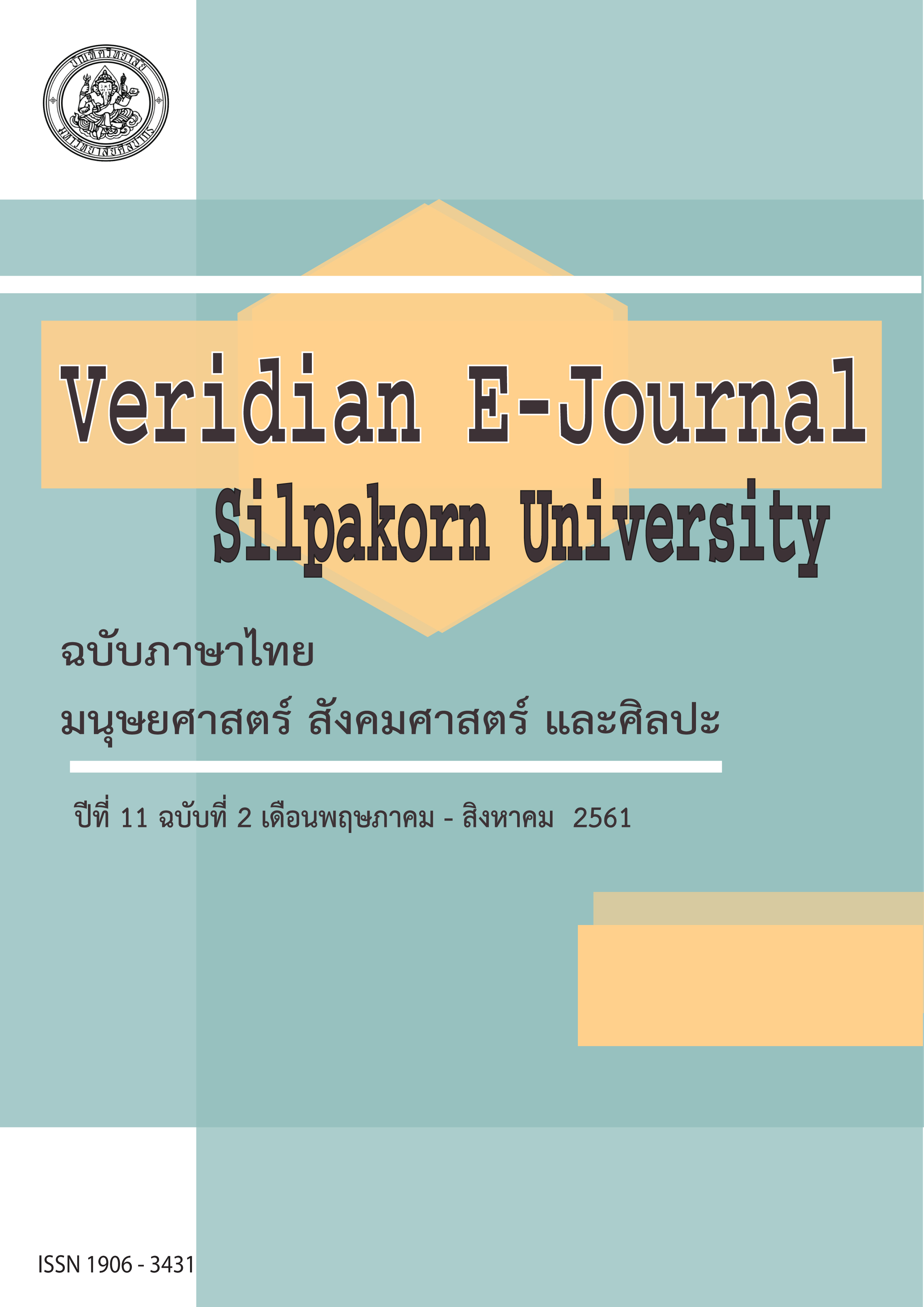แนวทางการพัฒนาการจัดการเรียนรู้ดนตรีสำหรับเด็กปฐมวัยใน โรงเรียนดนตรีเอกชนนอกระบบ (The Guidelines for Developing Early Childhood Music Learning in Non-formal Private School Setting)
Main Article Content
Abstract
งานวิจัยเชิงคุณภาพแนวปรากฏการณ์วิทยานี้มีวัตถุประสงค์เพื่อศึกษามุมมองจากประสบการณ์ของ ครูดนตรีปฐมวัย 9 ท่านเกี่ยวกับการจัดการเรียนรู้ดนตรีสำหรับเด็กปฐมวัยในโรงเรียนดนตรีเอกชนนอกระบบ ในด้าน 1) ประสบการณ์ 2) สภาพและปัญหาในการจัดการเรียนรู้ดนตรี 3) แนวทางการพัฒนาการจัดการเรียนรู้ ดนตรี โดยใช้การสัมภาษณ์เชิงลึก ทำการวิเคราะห์ข้อมูลขณะเก็บข้อมูลและภายหลังเก็บข้อมูลเพื่อให้ได้ข้อมูลที่ อิ่มตัว ได้ข้อสรุปที่ชัดเจน และตอบคำถามการวิจัย โดยได้ดำเนินการวิเคราะห์ตามแนวทางของโคไลซี่ (Colaizzi) ผลการวิจัยพบว่า ผู้ให้ข้อมูลมีประสบการณ์ในการจัดการเรียนรู้ดนตรีสำหรับเด็กปฐมวัยในโรงเรียนเอกชนนอก ระบบระหว่าง 6-12 ปี จบการศึกษาในระดับปริญญาตรีจนถึงระดับปริญญาเอกในสาขาดนตรี สาขาดนตรีศึกษา สาขาปฐมวัยศึกษา และสาขาดาลโครซยูริทึมมิค เป็นผู้เชี่ยวชาญและได้รับเชิญเป็นวิทยากรหรืออาจารย์ในระดับ มหาวิทยาลัย สถาบัน หรือองค์กรทั้งในและต่างประเทศและเป็นผู้มีบทบาทในการพัฒนาการศึกษาดนตรี สำหรับเด็กปฐมวัยในประเทศไทย ด้านสภาพและปัญหาในการจัดการเรียนการสอนพบว่า เกี่ยวข้องกับความรู้ และความเข้าใจของผู้ปกครอง คุณภาพและจำนวนของครูผู้สอน บุคลิกและความสม่ำเสมอของผู้เรียน สื่อและ กระแสสังคม และธุรกิจโรงเรียน ด้านแนวทางการพัฒนาเน้นไปที่ 2 ส่วนหลักคือ 1) การทำความเข้าใจ และการให้ความรู้กับผู้ปกครองด้วยวิธีการต่างๆ และ 2) การพัฒนาบุคลากรครูโดยใช้บทบาทของมหาวิทยาลัย และการรวมกลุ่มองค์กรหรือสมาคมครูดนตรีเด็กปฐมวัย
This phenomenological research aims to study view points from experiences of 9 early childhood music instructors in 3 aspects of early childhood music learning in non-formal private school setting; the key informants’ experiences, the state and problems in learning and teaching, and the guidelines for developing music learning and teaching. The indepth-interviews were used to be research tool . The data analysis; follow the Colazzi method, was done during and after data collection process for entire data, results, and answering research questions. The research results shown that 1) the key informants have been teaching music for early childhood in non-formal schools between 6-12 years. They were all graduated in music, music education, and music teaching method (Dalcroze approach) in Bacherlor degree, Master degree and Doctoral degree. They are specialists and invited to be lecturer and instructors in Universities, institutes, or organizations inside and outside Thailand. They play a key role for developing an early childhood music education in Thailand. 2) The status and problems in music learning and teaching invlove knowledge and understanding of parents, quality and quantity of music teachers, character and reguality of students, media and social impact, and school bussiness. 3) The quildlines for devloping early childhood music learning focus on a) give parents information and knowledge and b) Developing music teachers by Universities and assembly of society or association of early childhood music teachers

